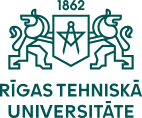|
Modern energy systems, such as wind turbines, motor drives in industry, and electric vehicles are prone to failures, resulting in loss of production, unavailability of services, or environmental disasters in a worst case. Electrical, mechanical, and thermal stresses are directly or indirectly responsible for these failures. To prevent these issues, energy systems must be regularly checked through routines and schedule specified by the manufactures. This schedule-based condition monitoring approach provides very little information on the remaining lifetime of the devices and does not allow for their prognostic and full exploitation. Furthermore, it is costly and presents problems related to the fact that devices might fail in between the routine check, which causes environmental risks and unsustainable use of resources. In this proposal, we present solutions for these drawbacks by combining Virtual Sensors (VS) with powerful Artificial Intelligence (AI) tools.We will develop models of the underlying devices that can run in real time and thus serve as Virtual Sensor fed by real operation data from the actual devices. The VS will monitor thermal, mechanical, and electrical stresses. The data from the VS will be used in failure models to predict the remaining lifetime of the devices allowing for fault-tolerant and overload usage of the said devices, as well as condition-based maintenance. This is possible if the models are used in combination with AI or machine learning engines running in the clouds. The data for training the AI-engines will be generated from physical models of the devices, such as the finite element models of electrical machines, or in some cases from reduced models of these devices, to speed up the learning process. We expect the methodology to detect localized failure potentials in critical components, such as bearings, gearboxes, motors and generators. The possibility to apply the methodology to power electronic devices will be investigated. |

